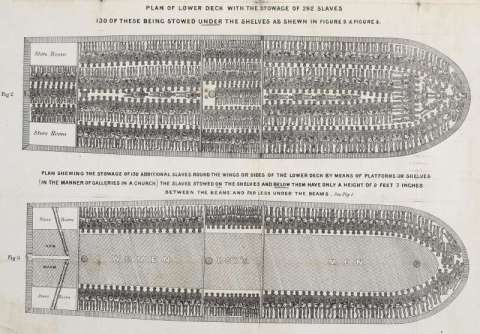Even when current practices are morally indefensible ...
Even when most of the population want change ...
… Vested interests will throw everything they can to block meaningful action.
If we don’t continue to do it, others will take our place.
These changes will put our country at a competitive disadvantage.
We mustn’t damage the economy.
There are other problems that should be addressed first.
Those were some of arguments thrown at William Wilberforce in 1789-1791 as he first proposed legislation to stop slave trading.
Most Britons knew that trade was evil.
Innocent people captured on the Guinea Coast of Africa. Taken from their families. Horrific voyages, packed like sacks in the holds of ships. Many dying from disease and malnutrition on the way. Some tossed overboard when they became weak or the rations were short. Sold at auction for thirty or forty pounds. A life of hard labour.
The sailors’ lives were little better. Whipped to obedience, hundreds died each year on these voyages.
Most Britons wanted the trade stopped.
But powerful forces then aligned against Wilberforce. Lords from their manors. Merchants from the ports. Admirals from the colonies. Even some preachers from the pulpits.
We’ve given these slaves a better life.
They are happy singing in the fields.
We’ve brought them to God.
The Superior state of civilisation is owing entirely to the slave trade which ignorant or designing people want to abolish.*
Parliament was pressured. Wilberforce’s bill was defeated by a margin of two to one.
More than half the population of Britain were illiterate. Most did not have the right to vote. But hundreds of thousands signed petitions against the trade. Wilberforce did not give up.
British slave ships continued to trade for another 16 years. The last British slaves were not freed until 1833.
Real change is really hard.
* This actual quote can be found in:
A summary of the evidence produced before the committee of the Privy Council, and before a committee of the House of Commons; relating to the slave trade. Printed for J. Bell, British Library, Strand, MDCCXCII. [1792].
Other (paraphrased) arguments come from this above publication; plus
Plain man, who signed the petition at Derby, and Plain man. The True state of the question, addressed to the petitioners for the abolition of the slave trade. Printed for J. Bell, 1792.; and
Innes, William. The slave-Trade indispensable: in answer to the speech of William Wilberforce, Esq. on the 13th of May, 1789. By a West-India-Merchant. Sold by W. Richardson , Royal Exchange ; J. Murray , Fleet-Street ; and J. Debrett, Piccadilly, M.DCC.XC. [1790].
(This article has been based on research for a book that I have been writing.)




Reaction to change - but at a
Reaction to change - but at a different level.
A friend recently said to me that electric cars are an unrealistic concept because the national grid will never cope with the load demand of hundreds of thousands of vehicles requiring recharging after their daily use. I asked him to think back a little more that 100 years:
"In 1894, The Times newspaper predicted… “In 50 years, every street in London will be buried under nine feet of manure.” This became known as the ‘Great Horse Manure Crisis of 1894’. The terrible situation was debated in 1898 at the world’s first international urban planning conference in New York, but no solution could be found. It seemed urban civilisation was doomed.
However, necessity is the mother of invention, and the invention in this case was that of motor transport. Henry Ford came up with a process of building motor cars at affordable prices. Electric trams and motor buses appeared on the streets, replacing the horse-drawn buses. By 1912, this seemingly insurmountable problem had been resolved; in cities all around the globe, horses had been replaced and now motorised vehicles were the main source of transport and carriage."
Maybe men's/women's ingenuity will find a way of getting the power electric vehicles need from other sources. Any ideas anyone?